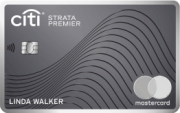The content is accurate at the time of publication and is subject to change.
How well do you understand the complexities of the plastic that you use almost on a daily basis? Despite the fact that the internet is bombarding you with all the credit card information you need, there are still uncertainties that keep bugging you.
Much of this dilemma can be pointed at the direction of credit card companies that are constantly issuing these plastic cards without even explaining to clients how these actually work. Honestly, not all of us are wizards in the financial kingdom and some of us are just plain uninterested by it. The fact cannot be avoided that these things are unsurprisingly confusing.
Here are a few tips or commandments that you need to remember.
• Pay off debts that are unsecured first. If you own more than one credit card and you have tried all that you can to exhaust its capacity, make sure to prioritize paying your unsecured debts first because these are riskier compared to those that are secured. Unsecured debts are those that are not backed up by anything, unlike auto, home, and personal loans that can be backed by collateral, such as your house or car. Remember, lenders charge higher rates for unsecured debts so the longer you allow these debts to size up, the higher your interest rates will be - and the longer it will be for you to suffer in paying it.
• Cancel unused credit card accounts! Although we are not advising you to cancel those that might still be of importance to you in the future, we are advising you, on the other hand, to cancel accounts, such as gas cards or reward cards from the stores. Those that you do decide to keep should only have minimal balances.
• Stagger your requests for credit reports to get one report every four months. This will help you keep track of your developments in paying off loans and confirming information.
• Banks can change your credit limit anytime they want even when you are a punctual payer. Unfortunately, these abusive practices are written at a "twenty-seventh grade level" comprised of very dense, compound terms that can change anytime without prior notice.
• The easiest way to lower interest rates and penalty fees is to negotiate with several lenders to open new credit accounts so you can take advantage of their promotional rates that have very low interest rates! But be sure to be on guard all the time for once the "teaser" rates are over, you may be in a more grievous state than you previously were! Also, sweet talking your lenders how you are considering transferring to another company will entail them to cut you some slack. Your good history with the company will work to your advantage because they will be more flexible with you.





